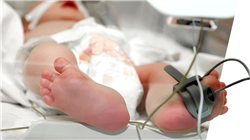University certificate
The world's largest faculty of medicine”
Introduction to the Program
With this online Postgraduate diploma, you will acquire advanced knowledge in hemodynamics, pharmacology and neuromonitoring techniques, as well as in the evaluation and treatment of intoxications and endocrinological disorders"

Currently, Digestive, Renal and Toxicological Emergencies in the Pediatric Intensive Care Unit (PICU) present a great challenge due to the increase of complex cases and the need for a rapid and specialized response. In fact, effective management of these cases depends on a highly specialized multidisciplinary team and access to advanced technologies for diagnosis and treatment.
In this context, this Postgraduate diploma is presented, which will cover the meticulous initial assessment of the critically ill patient, identifying vital signs of danger and establishing priorities in care. In addition, it will explore the optimization of Cardiovascular Support through advanced knowledge of hemodynamics, the safe administration of critical drugs and the management of their interactions and side effects.
Likewise, transfusions of blood products in critical children, the diagnosis and treatment of uremic-hemolytic syndrome, and the performance of accurate differential diagnoses in complex situations will be assessed. Knowledge on neuromonitoring of the critically ill child will also be updated and difficulties in postoperative management of difficult airway will be analyzed.
Finally, professionals will be able to recognize signs and symptoms of exposure to toxins, manage acute complications of endocrinological disorders, and use laboratory and diagnostic techniques to evaluate and monitor these conditions. The importance of coordination with pharmacists and toxicologists to optimize detoxification therapies and the use of antidotes will also be emphasized. To this is added the timely treatment of endocrinological emergencies, such as Hyperglycemic Crisis and Adrenal Insufficiency, encouraging participation in research studies to advance knowledge in these fields.
In this situation, TECH has developed a comprehensive online program, specially designed to adapt to the individual needs of students, eliminating difficulties such as the need to physically travel or comply with fixed schedules. Additionally, it is supported by the innovative Relearning methodology, which focuses on repeating essential concepts to ensure an effective and continuous understanding of the contents.
Upon completion of this Postgraduate diploma, you will be better prepared to provide high quality care, reduce mortality and improve clinical outcomes in the PICU. What are you waiting for to enroll?"
This Postgraduate diploma in Digestive, Renal and Toxicologic Emergencies in PICU contains the most complete and up-to-date scientific program on the market. The most important features include:
- The development of practical cases presented by experts in Digestive, Renal and Toxicological Emergencies in the PICU
- The graphic, schematic and eminently practical contents with which it is conceived gather scientific and practical information on those disciplines that are indispensable for professional practice
- Practical exercises where the self-assessment process can be carried out to improve learning
- Its special emphasis on innovative methodologies
- Theoretical lessons, questions to the expert, debate forums on controversial topics, and individual reflection assignments
- Content that is accessible from any fixed or portable device with an Internet connection
You will be skilled to effectively deal with digestive and renal emergencies, gaining a solid foundation for the management of pediatric patients in critical conditions. With all the quality guarantees that TECH offers you!"
The program’s teaching staff includes professionals from the field who contribute their work experience to this educational program, as well as renowned specialists from leading societies and prestigious universities.
The multimedia content, developed with the latest educational technology, will provide the professional with situated and contextual learning, i.e., a simulated environment that will provide immersive education programmed to learn in real situations.
This program is designed around Problem-Based Learning, whereby the professional must try to solve the different professional practice situations that arise during the course. For this purpose, students will be assisted by an innovative interactive video system created by renowned and experienced experts.
You will address the timely management of endocrinologic emergencies, such as Hyperglycemic Crisis and Adrenal Insufficiency, through the best didactic materials, at the forefront of technology and education"

You will analyze the accurate selection and administration of critical drugs, the navigation of ethical challenges, and the fostering of a collaborative and respectful environment in the Intensive Care team"
Why study at TECH?
TECH is the world’s largest online university. With an impressive catalog of more than 14,000 university programs available in 11 languages, it is positioned as a leader in employability, with a 99% job placement rate. In addition, it relies on an enormous faculty of more than 6,000 professors of the highest international renown.

Study at the world's largest online university and guarantee your professional success. The future starts at TECH”
The world’s best online university according to FORBES
The prestigious Forbes magazine, specialized in business and finance, has highlighted TECH as “the world's best online university” This is what they have recently stated in an article in their digital edition in which they echo the success story of this institution, “thanks to the academic offer it provides, the selection of its teaching staff, and an innovative learning method aimed at educating the professionals of the future”
A revolutionary study method, a cutting-edge faculty and a practical focus: the key to TECH's success.
The most complete study plans on the university scene
TECH offers the most complete study plans on the university scene, with syllabuses that cover fundamental concepts and, at the same time, the main scientific advances in their specific scientific areas. In addition, these programs are continuously being updated to guarantee students the academic vanguard and the most in-demand professional skills. In this way, the university's qualifications provide its graduates with a significant advantage to propel their careers to success.
TECH offers the most comprehensive and intensive study plans on the current university scene.
A world-class teaching staff
TECH's teaching staff is made up of more than 6,000 professors with the highest international recognition. Professors, researchers and top executives of multinational companies, including Isaiah Covington, performance coach of the Boston Celtics; Magda Romanska, principal investigator at Harvard MetaLAB; Ignacio Wistumba, chairman of the department of translational molecular pathology at MD Anderson Cancer Center; and D.W. Pine, creative director of TIME magazine, among others.
Internationally renowned experts, specialized in different branches of Health, Technology, Communication and Business, form part of the TECH faculty.
A unique learning method
TECH is the first university to use Relearning in all its programs. It is the best online learning methodology, accredited with international teaching quality certifications, provided by prestigious educational agencies. In addition, this disruptive educational model is complemented with the “Case Method”, thereby setting up a unique online teaching strategy. Innovative teaching resources are also implemented, including detailed videos, infographics and interactive summaries.
TECH combines Relearning and the Case Method in all its university programs to guarantee excellent theoretical and practical learning, studying whenever and wherever you want.
The world's largest online university
TECH is the world’s largest online university. We are the largest educational institution, with the best and widest online educational catalog, one hundred percent online and covering the vast majority of areas of knowledge. We offer a large selection of our own degrees and accredited online undergraduate and postgraduate degrees. In total, more than 14,000 university degrees, in eleven different languages, make us the largest educational largest in the world.
TECH has the world's most extensive catalog of academic and official programs, available in more than 11 languages.
Google Premier Partner
The American technology giant has awarded TECH the Google Google Premier Partner badge. This award, which is only available to 3% of the world's companies, highlights the efficient, flexible and tailored experience that this university provides to students. The recognition as a Google Premier Partner not only accredits the maximum rigor, performance and investment in TECH's digital infrastructures, but also places this university as one of the world's leading technology companies.
Google has positioned TECH in the top 3% of the world's most important technology companies by awarding it its Google Premier Partner badge.
The official online university of the NBA
TECH is the official online university of the NBA. Thanks to our agreement with the biggest league in basketball, we offer our students exclusive university programs, as well as a wide variety of educational resources focused on the business of the league and other areas of the sports industry. Each program is made up of a uniquely designed syllabus and features exceptional guest hosts: professionals with a distinguished sports background who will offer their expertise on the most relevant topics.
TECH has been selected by the NBA, the world's top basketball league, as its official online university.
The top-rated university by its students
Students have positioned TECH as the world's top-rated university on the main review websites, with a highest rating of 4.9 out of 5, obtained from more than 1,000 reviews. These results consolidate TECH as the benchmark university institution at an international level, reflecting the excellence and positive impact of its educational model.” reflecting the excellence and positive impact of its educational model.”
TECH is the world’s top-rated university by its students.
Leaders in employability
TECH has managed to become the leading university in employability. 99% of its students obtain jobs in the academic field they have studied, within one year of completing any of the university's programs. A similar number achieve immediate career enhancement. All this thanks to a study methodology that bases its effectiveness on the acquisition of practical skills, which are absolutely necessary for professional development.
99% of TECH graduates find a job within a year of completing their studies.
Postgraduate Diploma in Digestive, Renal and Toxicologic Emergencies in PICU
The Postgraduate Diploma in Digestive, Renal and Toxicological Emergencies in the PICU developed by TECH Global University is an innovative academic program that offers specialized training for health professionals interested in the advanced management of critical situations in children. This course, taught in 100% online modality, is designed to provide in-depth understanding and practical skills in the management of such emergencies. The program covers a wide range of topics crucial to pediatric care. You will learn to identify and effectively manage acute and chronic pathologies that can be life-threatening to pediatric patients. Through a current scientific evidence-based approach, the degree focuses on early identification of clinical signs and symptoms, as well as implementation of appropriate and effective therapeutic interventions. The program content includes detailed modules on digestive diseases such as appendicitis, intestinal obstructions and gastrointestinal bleeding, providing knowledge on accurate diagnostics and efficient treatments. In addition, renal disorders, including acute or chronic renal failure and urinary tract infections, are covered in depth. Therefore, you will learn about dialysis techniques and other methods of renal support, essential in emergency situations.
Specialize in digestive, renal and toxicological emergencies in the PICU.
The online modality of the course offers a unique flexibility, allowing you to access the content at times that suit your personal and work commitments. Through an advanced digital platform, you will have access to exclusive material that facilitates dynamic and effective learning. In addition, you will have the continuous support of a team of expert tutors in pediatric emergencies, who will provide personalized guidance and resolve doubts throughout the program. This course not only focuses on theoretical knowledge, but also emphasizes practical application through case studies and simulations. Thus, you will be equipped to face the daily challenges in the PICU, improving the quality of care and contributing significantly to saving children's lives. Enroll now and excel in the field of pediatric emergency medicine! This advanced training not only enriches your knowledge and skills, but also enhances career opportunities and the ability to provide high quality care in critical situations.







